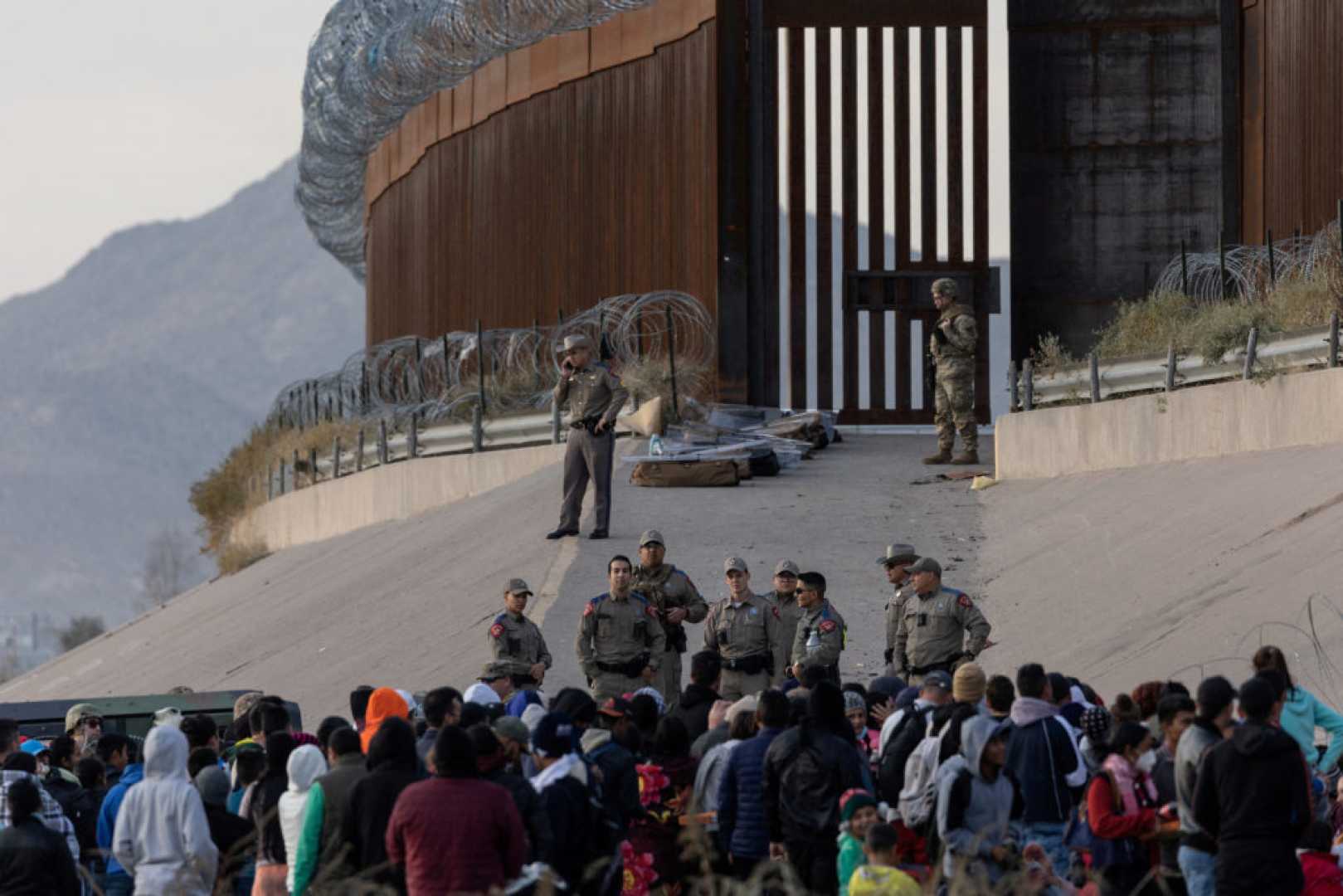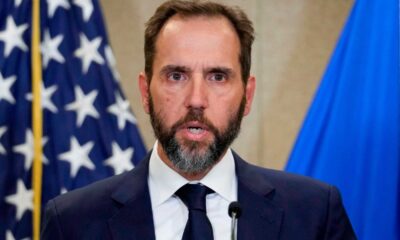Politics
Trump Shuts Down US-Mexico Border Asylum Appointments on First Day in Office

CIUDAD JUÁREZ, Mexico — Thousands of migrants seeking asylum in the United States were left in limbo Monday after President Donald Trump, on his first day back in office, shut down the CBP One app, a key tool for scheduling asylum appointments at the U.S.-Mexico border. The abrupt cancellation of appointments has effectively sealed off the southern border to asylum seekers, marking a dramatic shift in U.S. immigration policy.
The CBP One app, introduced under the Biden administration, allowed migrants to schedule 1,450 daily appointments at eight ports of entry along the 2,000-mile border. More than 936,500 people had secured appointments since January 2023. However, within hours of Trump’s inauguration, all existing appointments were declared invalid, leaving migrants like Margelis Tinoco Lopez, a Colombian mother who arrived at the border with her family, devastated. “I’m devastated,” Tinoco Lopez said. “It feels like a sense of instability, and I feel vulnerable and scared.”
Trump’s executive actions also included suspending refugee resettlement, declaring a national emergency at the border, and targeting birthright citizenship. These measures have drawn immediate legal challenges from advocacy groups, including the American Civil Liberties Union (ACLU). “The decision to eliminate all avenues to seek asylum, even for families with children fleeing for their lives, is a stunning development,” said Lee Gelernt, an ACLU attorney who has challenged Trump’s border policies in the past.
Migrants who had been waiting for months for their appointments expressed shock and disappointment. Luis, a Venezuelan migrant living in Ciudad Juárez, said he was “trying to do things the right way” before learning his appointment had been canceled. Yenyile Díaz, another Venezuelan migrant, shared similar frustrations. “We did all this legally,” she said. “Right now, we don’t know what’s going to happen.”
Andrew Selee, president of the Migration Policy Institute, called the policy shift “a huge departure” from previous protocols. “As of today, there’s almost no way of getting protection at the U.S. border or anywhere along a route to the United States,” he said.
Republicans have long argued that the U.S. asylum system has been abused, with many migrants seeking economic opportunities rather than fleeing persecution. However, advocates warn that Trump’s actions could endanger vulnerable populations. “These executive orders totally disregard civil liberties,” said Jennifer Babaie, director of legal services at Las Americas Immigrant Advocacy Center in El Paso. “If a government can come in on day one and put this much restriction on civil liberties, what else would they be willing to do?”
As legal battles unfold, migrants like Jesse Palmera, a Venezuelan who lost his Jan. 28 appointment, are left grappling with uncertainty. “When I got the appointment, I thought, ‘My parents and sisters won’t have to suffer economically because I can finally work and send money back home,’” Palmera said. “Now, I don’t know what’s next.”












